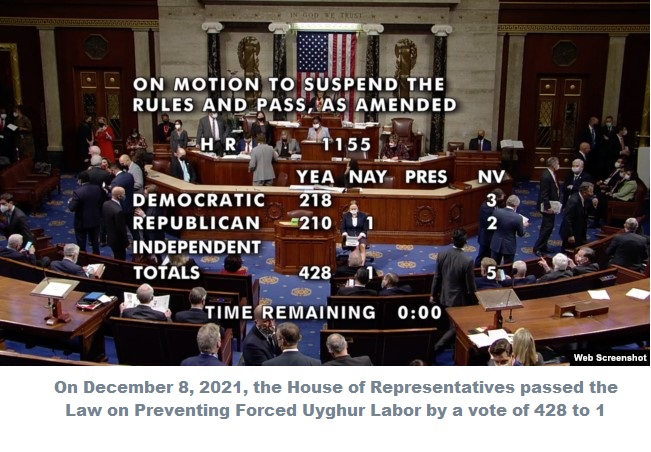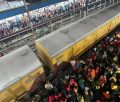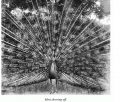Impact Of US Law on Preventing Forced Uyghur Labour


The Prevention of Forced Uyghur Labor Act has been in effect for half a year since it was signed into force by President Biden in December 2021. In late June, U.S. Customs and Border Protection also began enforcing the law, stepping up its scrutiny and seizure of a large number of imports that may involve forced labor. In the face of the implementation of the decree, multinational companies have strengthened their supply chains and tracking and supervision in the face of short preparation time. Despite the extreme difficulty of tracking supply chains from start to finish on a global scale, the adoption and implementation of the law still has a positive impact on preventing forced labor in Xinjiang and even worldwide.
On June 21, 2022, U.S. Secretary of State Blinken issued a statement announcing that from now on, U.S. Customs and Border Protection will begin implementing the Prevention of Forced Uyghur Labor Act regulations that prohibit xinjiang forced labor products from entering the United States.
The law was signed into force by President Biden on December 23, 2021. The bill prohibits the United States from importing all products from Xinjiang unless companies provide clear and convincing evidence that there is no forced labor in their supply chains.
In July 2022, the University of Nottingham Rights Lab in the United Kingdom released a study titled “Making Xinjiang Sanctions Effective.” The report points out that there are two main situations of forced labor: First, the “vocational skills and education and training centers” in Xinjiang force them to work against their will; The second is to send ethnic minority labor to the interior.
On June 17, 2022, the U.S. Department of Homeland Security released a “Strategy to Prevent Forced Labor From China from Mining, Producing, and Manufacturing Products by Forced Labor,” which highlights four broad categories of products that are key to prevention: clothing, cotton, tomato, and silicon raw material products.
Craig Allen, chairman of the U.S.-China Business Council, shared his insights since the law was implemented at an Aug. 4 webinar.
He said that for enterprises, the biggest impact of the Law on Preventing Forced Uyghur Labor is that now enterprises must be very careful in supply chain issues, “Of course, companies have always paid attention to supply chain issues, but in the past, each company may have focused differently.” But now every business needs to comply with the law and investigate the source of supply as deeply as possible, which is not an easy task. ”
Also attending the workshop was Jon Gold, deputy director of the Supply Chain and Customs Policy Division of the National Retail Alliance. Gode said that in the past few years, U.S. Customs and Border Protection have stepped up inspections of products from Xinjiang, mainly for clothing, hair care products, solar products, polysilicon and tomato products. According to the latest data released by Customs, from October 1, 2021 to June 30, 2022, Customs issued six seizure orders containing more than 2,000 shipments. Customs has not yet disclosed whether the seized goods have been released.
Companies with seized goods need to provide clear and convincing evidence that there is no forced labor in their supply chains, Gode said. “That means they have to track all the way to the first stop of the raw materials,” Gode said, “where the cotton is grown, where the sand that produces polysilicon and solar panels comes from, where the tomatoes are grown, and so on.” ”
“Of course, this is very difficult for a lot of businesses because they tend to only deal with the suppliers at the next level, and then trace to the suppliers at the next level, and the suppliers below them, which is very difficult.” But that’s exactly what they need to do now. ”
According to Jonathan Gode, the U.S. government has made a lot of efforts to increase law enforcement. In 2022, Congress will allocate $30 million to Customs and Border Protection to strengthen oversight of the implementation of the Forced Labor Act, with a further $70 million next year. In addition, Customs and Border Protection will send an additional 300 law enforcement officers to cooperate with the anti-forced labor investigation. However, Gode stressed that this is a challenge for companies: “Before the law came into effect, companies were only given 180 days to adjust their strategies. ”
“For businesses, they need more time to figure out how to comply with the law. They need to adapt their new tactics before the decree comes into force, but they don’t have enough time now. ”
Xinjiang’s position in the global economy
The Washington Center for Advanced Defense Studies (C4ADS), a Washington-based think tank, released a report in May 2022 that detailed an analysis of Xinjiang’s economic makeup. The report cites data from China’s National Bureau of Statistics as saying that in 2019, 51.6 percent of Xinjiang’s GDP composition came from the tertiary sector, 35.3 percent from manufacturing, and 13.1 percent from raw materials and agriculture.
As China’s largest province by area, Xinjiang’s economic activity has a unique position in the world market. Judging from the output volume on a global scale, Xinjiang has several major categories of products accounting for a considerable proportion. Among them, long-staple cotton accounts for 54.22% of global production. Other agricultural products account for the highest global production are common cotton, melons, tomatoes, peppers and walnuts.
At the same time, Xinjiang is also a region rich in mineral resources in China, producing as many as 138 minerals including crude oil, coal, natural gas, iron sulfide, nickel, copper, and zinc. Most of Xinjiang’s energy output is used domestically, but a large part of the processed manufactured goods is exported.
In 2019, Xinjiang’s total cotton production was about 5 million tons, accounting for 19% of global production. A large amount of Xinjiang cotton is shipped to Chinese mainland made into yarns, textiles and clothing before being exported to countries around the world. Although the U.S. government has banned the import of xinjiang cotton as a material, it is difficult to prevent Xinjiang cotton from entering the international market through other channels.
Another major agricultural product in Xinjiang is tomatoes. In 2019, Xinjiang produced 356,000 tons of ketchup, accounting for 1/4 of the world’s total ketchup. Similar to cotton farming, tomato cultivation involves a large number of low-skilled seasonal workers, so the likelihood of forced labor is very high. The United States banned the import of Xinjiang ketchup in 2021, but it has not completely prevented ketchup from entering the North American and international markets indirectly through other channels.
In addition to tomatoes and 19% of the world’s production, Xinjiang also produces 40% of the world’s polysilicon, 22% calcium carbide, 10% rayon and 13% of wind turbines.
According to the China Bureau of Statistics, from the perspective of Xinjiang’s exports to countries around the world, the top few largest exporters in 2020 are Kazakhstan, Kyrgyzstan, Russia and Tajikistan. Exports to the United States amounted to $300 million, ranking only eighth.
The report from the Center for Advanced Defense Studies in Washington notes that while data from the Bureau of Statistics shows the general picture of economic activity and exports in Xinjiang, the reality is far more complex. Because in many cases, raw materials produced in Xinjiang are processed into other products in other regions and countries and then exported to all parts of the world.
The Aug. 4 seminar also addressed the Chinese government’s response to this. Due to the Extreme Opacity and Non-Cooperation of the Chinese Government on the Xinjiang Issue, how to understand and implement the Law on Preventing Forced Uyghur Labor has also brought many different opinions to political and academic circles.
Craig Allen said the Chinese government strongly opposes any allegations of forced labor in Xinjiang. “Either way, the law is the law, and U.S. companies have to comply with U.S. law.” I think the Chinese government understands this as well. The Chinese government will also take countermeasures if it feels that U.S. companies are treating them unfairly, although there is no relevant decree in place. However, he stressed that China does not want To let American companies that export Chinese products get caught up in the legal dilemma.
Allen concludes that in many places, including China, nationalism, patriotism and even chauvinism are on the rise, so many multinationals have to be extra careful. “Thousands of companies have business in both China and the United States, and if you are the CEO (CEO) of these companies, then your communication in these two markets, compliance with the law, and how to show the company, you need to be very normative, because these two markets cannot be lost.”
“H&M (Swedish apparel brand group: Henness-Mauritz) is a good example, and everyone doesn’t want to be like that. If you want to avoid being trapped in a conflict of laws and avoid the influence of nationalist sentiments, it is very difficult for the entire company to need extremely strong norms up and down. ”
In September 2020, Swedish fashion company H&M issued a statement in response to reports and allegations of forced labor by Uighurs, saying it “does not cooperate with any garment manufacturing plant in Xinjiang and does not source products or raw materials from the region.” In March 2021, the announcement set off a massive boycott of H&M in China, known as the “Xinjiang Cotton Storm.” China’s state media and non-governmental organizations mobilized to support Xinjiang cotton, boycott enterprises that used Xinjiang cotton, and caused some Chinese enterprises to withdraw from the “Good Cotton Development Association”.
On March 31, 2021, H&M’s CEO revealed that it was closing 20 stores in China.
Craig Allen added that it is now being seen that companies are much more advanced in tracking supply chains and logistics records than before. “But it’s very expensive to do that, so the next product will go up in price.”
Jonathan Gode said that the implementation of the anti-forced labor law is also of great significance for anti-forced labor on a global scale. “There is also forced labor in other industries around the world, such as cocoa cultivation and fishing, which has been experiencing severe forced labor for many years. So the implementation of this regulation this time also sets a good example for other industries. ”
He said that for enterprises, to track the supply chain from beginning to end, it is undoubtedly very complicated and takes a long time. “This is definitely a huge challenge, especially for SMEs. But no company wants to have forced labor in its supply chain. This is corporate social responsibility, it is what they must do in the first place, and now they want to do more. ”####
— VOA report
-
Book Shelf
-
 Book Review
DESTINY OF A DYSFUNCTIONAL NUCLEAR STATE
Book Review
DESTINY OF A DYSFUNCTIONAL NUCLEAR STATE
- Book ReviewChina FO Presser Where is the fountainhead of jihad?
- Book ReviewNews Pak Syndrome bedevils Indo-Bangla ties
- Book Review Understanding Vedic Equality….: Book Review
- Book Review Buddhism Made Easy: Book Review
- Book ReviewNews Elegant Summary Of Krishnamurti’s teachings
- Book Review Review: Perspectives: The Timeless Way of Wisdom
- Book ReviewNews Rituals too a world of Rhythm
- Book Review Marx After Marxism
- Book Review John Updike’s Terrorist – a review
-
-
Recent Top Post
-
 CommentariesTop Story
India’s Migration Dilemma
CommentariesTop Story
India’s Migration Dilemma
-
 Commentaries
Crowd Management Blues
Commentaries
Crowd Management Blues
-
 Meher Baba SpeaksNews
Meher Baba Loved Them Too…
Meher Baba SpeaksNews
Meher Baba Loved Them Too…
- Commentaries Record Pentagon spending bill and America’s hidden nuclear rearmament
-
 CommentariesNews
Ides of trade between India and Pakistan
CommentariesNews
Ides of trade between India and Pakistan
-
 Commentaries
How sustainable is the rhetoric of India-China Bhai-Bhai
Commentaries
How sustainable is the rhetoric of India-China Bhai-Bhai
-
 CommentariesTop Story
New Set of Diplomatic Strains with Canada
CommentariesTop Story
New Set of Diplomatic Strains with Canada
-
 News
Ratan Tata’s Legacy
News
Ratan Tata’s Legacy
-
 Commentaries
India’s Strategic Push on the World Stage
Commentaries
India’s Strategic Push on the World Stage
- Commentaries Veils of Resistance
-
AdSense code
















